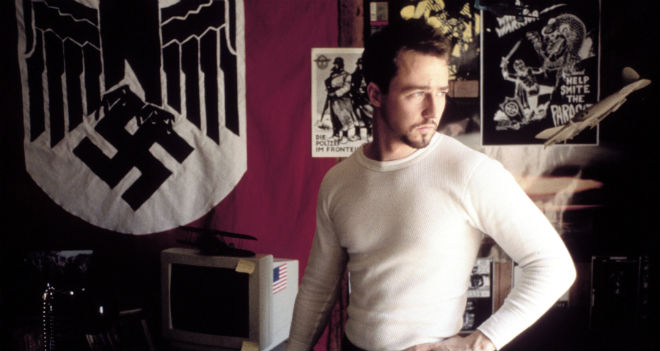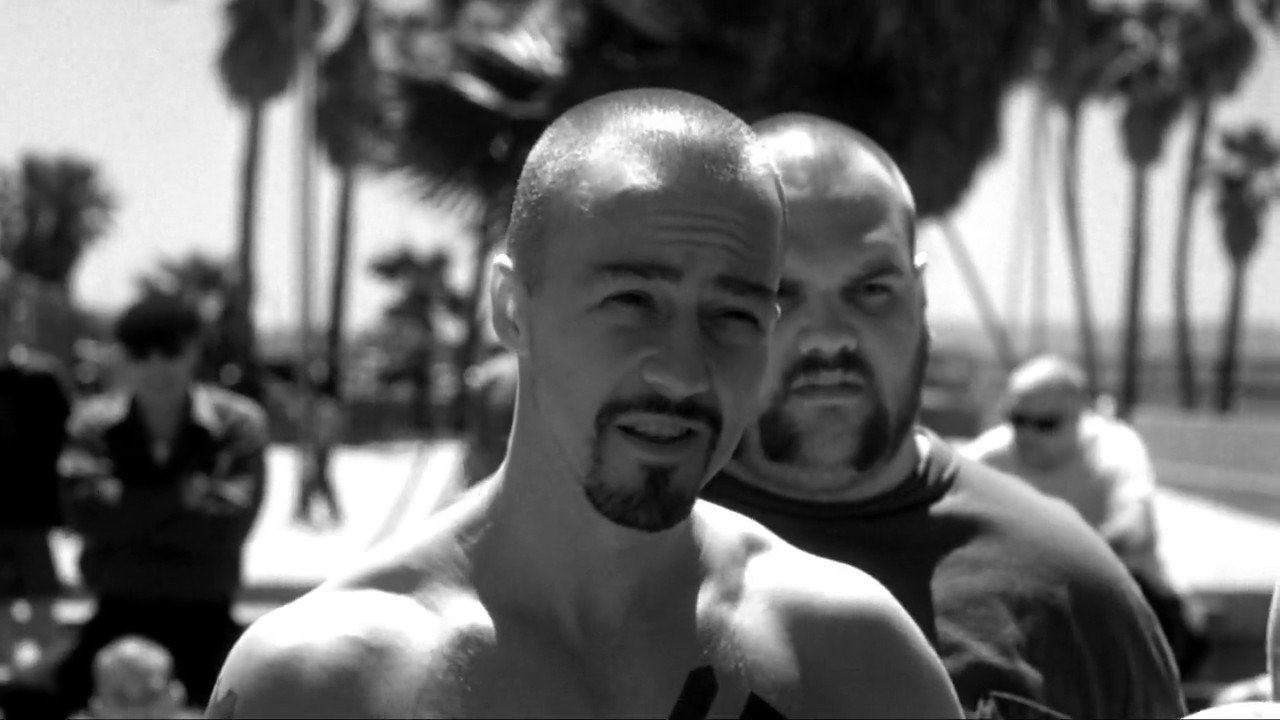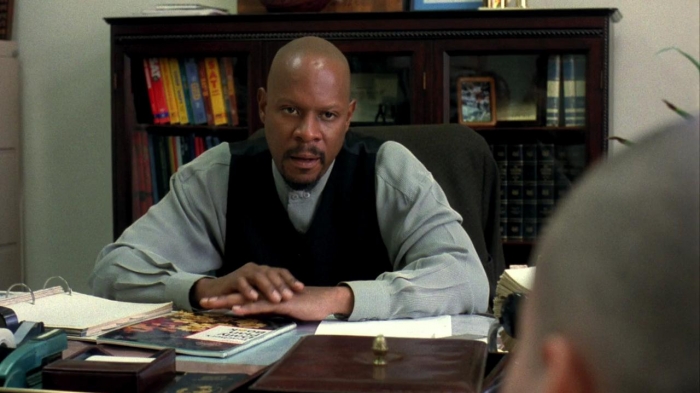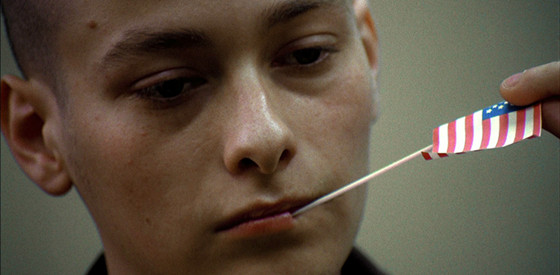5. The cinematography

Beautifully shot in a slick style that accentuates the foreground and creates images akin to modelling shoots or posters, this is another part of the film’s greatness. It makes you feel a certain way about what you are seeing as it is presented in the form that advertising campaigns are normally shot.
Kaye’s background was in advertising and this aesthetic is plain to see. What this does is make you sympathise with a certain point of view only for you to feel revulsion at yourself for what you’ve just been tricked into buying by the camera. Some have denounced this aspect of the film as unintentionally promoting the kind of ideal that it claims to abhor, however this does not take into account the clear direction of the narrative.
Kaye came from a family of Orthodox Jews: it seems highly unlikely that he would, even carelessly, promote neo-Nazi ideals. The use of black and white film is effective in the flashback sections and slow motion is used sparingly for the most traumatic events to heighten the emotional impact.
6. The Basketball match

This is a fantastic example of how to make an audience experience a reality check. The soundtrack and filming style deliver everything we’re used to seeing in a heroic moment on the screen. Many different dramatic uses of sports or games or battles have been put on screen as finales to underdog stories complete with rousing music and the “grabbing the winning score” shot that delivers an exciting climax.
All the tropes are here to see: underdogs at the risk of losing the game, high stakes, eager onlookers and the coming together of the team just in time to win the day. It is so easy for the audience to get swept up in this and forget entirely what the stakes are and what the terrible purpose is that exists behind this ‘game’.
The shooting of this scene is tailor-made to trick the audience so that only in the midst of the excitement do we realise that this is all about. Basketball aficionados have torn apart the actual realities of the scene and it is, in some quarters, regarded as hilariously bad (Norton should have gone for the lay up, he double dribbled etc.) but the impact of the scene on the audience is undeniable.
7. A great example of a school Headteacher to inspire others

Avery Brooks’ Principal Sweeney is a school leader who gets involved in the community: in his students’ lives, working with the police and even visiting his students in prison. It’s rare that school leaders are portrayed sympathetically in films. They’re all either horrible fascists like Mr Trask in Scent of a Woman, sadistic brutes like Mr Sugden in Kes or a joke like Mr Rooney in Ferris Bueller’s Day Off.
It is highly refreshing to meet a representation of this job who is so dedicated and involved. Brooks plays the part with incredible gravitas. His scenes with Norton and Furlong are very moving and heartfelt and you can see the impact that education can have in combating the kind of hate on display in the film. It’s a message to everyone involved in education around the world about just what the job should be about: changing lives, challenging ideas and helping young people prepare for life.
8. The Ending

As previously stated, the road to redemption is seldom an easy one. Some chasms are too great to be bridged in one lifetime. There is no redemption without sacrifice. The consequences of our actions will always catch up with us in the end.
So it is with Derek Vineyard. The tragic part of the story, and the part that elevates this film above others, is the way in which it is not Derek who suffers as a result of his previous mistakes. His actions touch the life of his brother and set him on a path that eventually leads to his tragic death.
There is no chance given to see what becomes of Derek after the shocking events that unfurl. We are simply left to speculate as to his future; will he revert to his old ideals, withdraw from the situation completely or go on to achieve redemption through his actions to put right what has transpired because of him.
As it happens with similar shocking stories in the real world of news, we the viewers are left to wonder what will happen with no guarantee of consolation.
Author Bio: Richard Austin is a Primary School Deputy Headteacher who’s just finished his first novel and is saving up to get it edited. When he was a kid, he used to keep a little book of the films he went to see at the cinema, giving them ratings out of 5, which his family and friends find highly amusing to this day! He also has a website where he writes his random thoughts about science fiction.